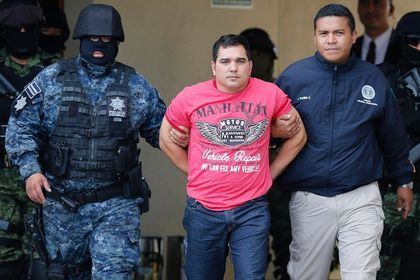
Mexican national security commissioner Monte Alejandro Rubido announced on Monday that the alleged head of the Gulf Cartel in Tamaulipas state was captured on Sunday morning in a raid carried out by the Mexican military. Authorities say Juan Manuel Rodríguez García, or “Juan Perros,” is one of the main authors of a recent surge in violence in the state, and accuse him of attacking federal security forces as well as kidnapping and murdered undocumented migrants bound for the United States.
La Cronica de Hoy writes that authorities say not a single shot was fired during the operation, which was carried out in a hotel in a suburb of Monterrey, in the state of Nuevo León, where the 39-year-old was staying with his wife and children. The security commissioner said Rodríguez García had taken control of Gulf cartel operations in the state in August 2013 after the capture of former head Mario Armando Ramírez Treviño, though some members within the drug gang had not recognized him as leader, setting off in-fighting even as the Gulf cartel battle their rival Zetas for control of lucrative drug routes into the US.
ADN Politico writes that Tamaulipas, which shares a border with Texas, saw the second-most kidnappings, fourth-most extortions and tenth-highest rate of homicides in the first trimester of 2014. In mid-May, the federal government unveiled a new security strategy for the state in response to the spike in violence, including the creation of four new offices of the Mexican department of justice in the state as well as increased patrols by security forces and newly constructed checkpoints. The capture of Rodríguez García marks the third arrest in recent weeks of drug bosses with a cartel long suspected to have substantive links with the governing Institutional Revolutionary Party (PRI).
© 2025 Latin Times. All rights reserved. Do not reproduce without permission.





